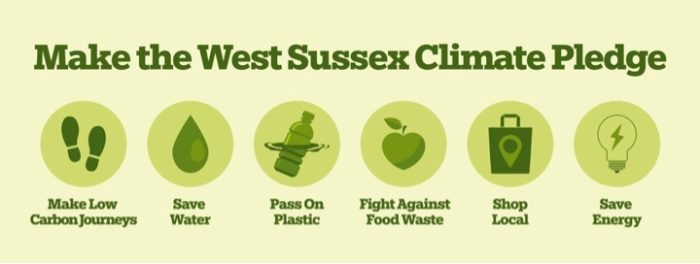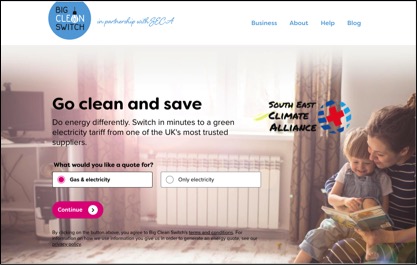Actions by governments, councils and business need to be matched by those of individuals if we’re to get on top of the climate emergency. But where do you start? Here are a series of links to some excellent resources on this topic, some from national websites and others from individual SECA member groups. 
52 Actions – is a website listing 52 different actions you can take, clustered under the following themes. https://www.52climateactions.com/
WSCC climate pledge – a series of practical pledges you can make as an individual. Sign up to the Facebook Group and you’ll get extra tips and reminders on how to go to the next step. 
What can you do? – 9 practical actions from Nicola Peel’s Eyes of Gaia website.
Pledges for the Planet Two practical sets of pledges from Carrie Cort’s Sussex Green Living website.on what you can do make a difference. Use them as a tick list to stick up on the fridge:
- Your Action Plan for a Better Future (aimed at adults)
- Family Action Plan for a Better Future (aimed at families)
21 Covid energy saving tips from ComparetheMarket.com
Saving energy at home
Energy Saving Trust – advice on how to make your home more energy efficient, reduce your carbon emissions and lower your energy bills.
Switch to green energy
Switching to a green energy supplier will mean you’ll be doing your bit to encourage the rollout of renewable energy while helping address the climate emergency. And it doesn’t cost any more than dirty fossil fuel based tariffs; in fact it will almost always save you money.
To make this really easy, SECA has teamed up with the Big Clean Switch energy switching service to create this special online switching page. All you do is pop in your details, say which supplier you’re currently using, and put in an estimate of your current usage. It then comes back with a list of potential green alternatives and how much you’ll save by switching. You can click through to make the change in a few easy steps. And for each switch made, SECA earns a small commission which will be used to help cover our ongoing operating costs. For full details, take a look at this blog article spelling it all out.
Measure your carbon footprint
Getting an idea of your individual carbon footprint is an important first step in figuring out where your actions can make the greatest difference. There are many carbon footprint calculators around; the WWF calculator is one of easiest to use and compares your estimated emissions to the 2020 target set by the UN. It asks a series of general questions on your lifestyle and consumption patterns, and doesn’t require meter readings.
Carbon Independent is another good tool which covers direct and indirect emissions. This is more precise as it asks you to put in actual gas and electricity meter readings, along with travel mileage assumptions.
It’s notable that the two calculators produce quite different figures – reflecting the somewhat different assumptions they are making. Provided you keep using the same one, you can track your emissions trajectory over time and see how your individual actions can combine to drive down your emissions.
Going up one level, the Impact Community Carbon Calculator is a powerful and user friendly tool from the Centre for Sustainable Energy that allows you to estimate your carbon footprint at the parish level.
Do let us know of any favourite resources of this kind that you know about. Email us at southeastclimatealliance@gmail.com.
Learning about Climate Change
There is a huge amount to learn on the causes and solutions to climate change and wider ecological breakdown. Here’s some useful links on courses to consider:
Future Learn – are offering a free four-week online course on Climate Solutions, in collaboration with Exeter University, where learners will explore solutions including mitigation, adaptation and geo-engineering, which can help avoid the most dangerous climate changes.
Centre for Alternative Technology Short Courses – CAT offer a range of courses on topics ranging from practical advice on how to construct to reed beds to bigger policy areas, such as the Zero Carbon Britain plan.



